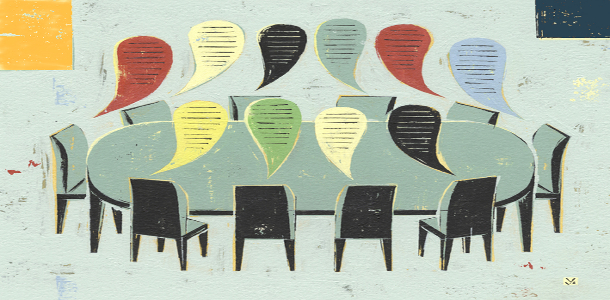Posted by laurajane on Jul 30, 2013 in Uncategorized | Comments Off on 27 modifiers that have been drained of meaning





Posted by laurajane on Jul 25, 2013 in Uncategorized | Comments Off on Meet the people behind everyday words
Meet the people behind everyday words
We’ve all heard of the Earl of Sandwich and Louise Braille. The words coined for their inventions are examples of eponyms—words derived from a person’s name. We can all think of some famous eponyms, but many words we use every day are eponyms and we don’t even know it. Here are some of those more obscure eponyms. (Definitions are from Wordnik.com.) Boycott—to abstain from buying or using; refusing to patronize or attend. Named after Charles Boycott (1832–1897), an English land agent in Ireland. Nonviolent coercive tactics were successfully used against him in...

How to say “I don’t knowR...
How many of you have had a boss who expects you to know and remember everything? He calls demanding an immediate answer, yet he himself can’t remember that he asked you the same question two days ago. Saying “I don’t know” to such a boss is unwise. Doing so can make you seem unprofessional or uninterested in the question. You don’t want to end up looking like Jeff Spicoli from the movie “Fast Times at Ridgemont High.” (For those who haven’t seen it, here is the famous “I don’t know” clip from the movie.) Even more unwise is to give a wrong answer just...

Posted by laurajane on Jul 10, 2013 in Uncategorized | Comments Off on Which style guide rules do you break and why?
Which style guide rules do you break and...
PR Daily readers love their style guides. As writers and editors, we rely on style guides to set and enforce standards for our company (or client) content or publications: Is health care one word or two? Do we use serial commas? Do we abbreviate the names of states? Though the styles guides we use (the Associated Press Stylebook, the Chicago Manual of Style, or even an in-house style guide) might have conflicting guidelines, without these guides, our content would be a hot mess. As much as we love our style guides, there are times when we are forced to put them aside due...

13 writing tips for the web
In a previous post, I wrote about my favorite book on Web writing, “Letting Go of the Words: Writing Web Content that Works” by Janice Redish. Filled with practical advice and case studies, the book is one of the best I’ve read about Web writing. This week I found another outstanding resource on writing for the Web. It’s a new report from website usability expert Jakob Nielsen, “Website Reading: It (Sometimes) Does Happen.” Using eye-tracking studies of hundreds of users interacting with websites, the report describes exactly how users read Web content. Just...

Posted by laurajane on Jun 27, 2013 in Uncategorized | Comments Off on Did you mean to resign or re-sign? Words that need hyphens












